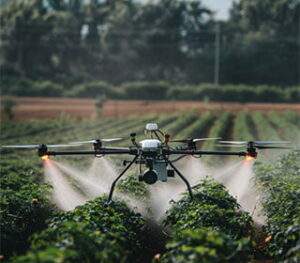MINI EXCAVATOR
Introduction
The agriculture industry has always been at the forefront of technological innovation, adapting to changing environments and increasing demands. As we look towards 2024, several key trends in tractor technology are poised to revolutionize farming practices, enhance efficiency, and promote sustainability.
The Evolution Of Agriculture

The evolution of agriculture is a testament to human innovation and adaptability, marking the transition from nomadic hunter-gatherer societies to settled farming communities. This journey began over 10,000 years ago, when early humans started to domesticate plants and animals, fundamentally changing their relationship with the environment and paving the way for the development of civilizations.
Early Agriculture
The dawn of agriculture was characterized by the domestication of wild grains and animals in various parts of the world. In the fertile crescents of the Middle East, wheat and barley were among the first crops to be cultivated. Similarly, rice and millet farming took root in East Asia, maize in the Americas, and sorghum in Africa. Alongside crop cultivation, the domestication of animals like sheep, goats, pigs, and cattle offered a steady food supply and labor force, further anchoring human settlements.
The Age Of Mechanization
The Industrial Revolution in the 18th and 19th centuries marked a significant turning point in the evolution of agriculture. The invention of machinery such as the seed drill and the mechanical reaper revolutionized farming practices, increasing productivity and efficiency. These innovations, coupled with the development of synthetic fertilizers and pesticides in the 20th century, led to the Green Revolution, a period of extraordinary growth in agricultural output that helped to alleviate hunger in many parts of the world.
Modern Advances
Today, the agriculture sector is undergoing another transformation, driven by digital technology and a growing awareness of environmental sustainability. Precision agriculture, which uses GPS navigation, drones, and IoT devices, allows farmers to monitor and optimize their crops and livestock with unprecedented precision. Similarly, advancements in genetic engineering and biotechnology are enabling the development of high-yield, drought-resistant, and pest-resistant crops.
Sustainability And Challenges
As the global population continues to grow, the demand for food production increases, placing additional stress on the environment. Agriculture is a significant source of greenhouse gas emissions, water consumption, and habitat destruction. Addressing these challenges requires a shift towards more sustainable farming practices, such as regenerative agriculture, which aims to restore soil health, sequester carbon, and increase biodiversity.
The Future Of Agriculture
Looking ahead, the future of agriculture is poised to be shaped by innovations in technology and sustainability. Advances in artificial intelligence, robotics, and vertical farming hold the promise of further increasing efficiency and reducing the environmental footprint of farming. Meanwhile, the integration of renewable energy sources into agricultural operations is set to reduce dependence on fossil fuels.
The evolution of agriculture is an ongoing story of human ingenuity, reflecting our capacity to adapt and innovate in the face of changing circumstances. As we confront the challenges of the 21st century, the lessons learned from thousands of years of agricultural development will be crucial in guiding us towards a more sustainable and food-secure future.
2024’S Top Tractor Trends
As we approach 2024, the agricultural sector is poised to embrace a wave of innovative tractor trends, driven by technological advancements and a growing emphasis on sustainability and efficiency. These trends not only promise to enhance the capabilities of tractors but also to revolutionize the way farming is done, making it more precise, efficient, and environmentally friendly. Let’s delve into these trends in more detail.



